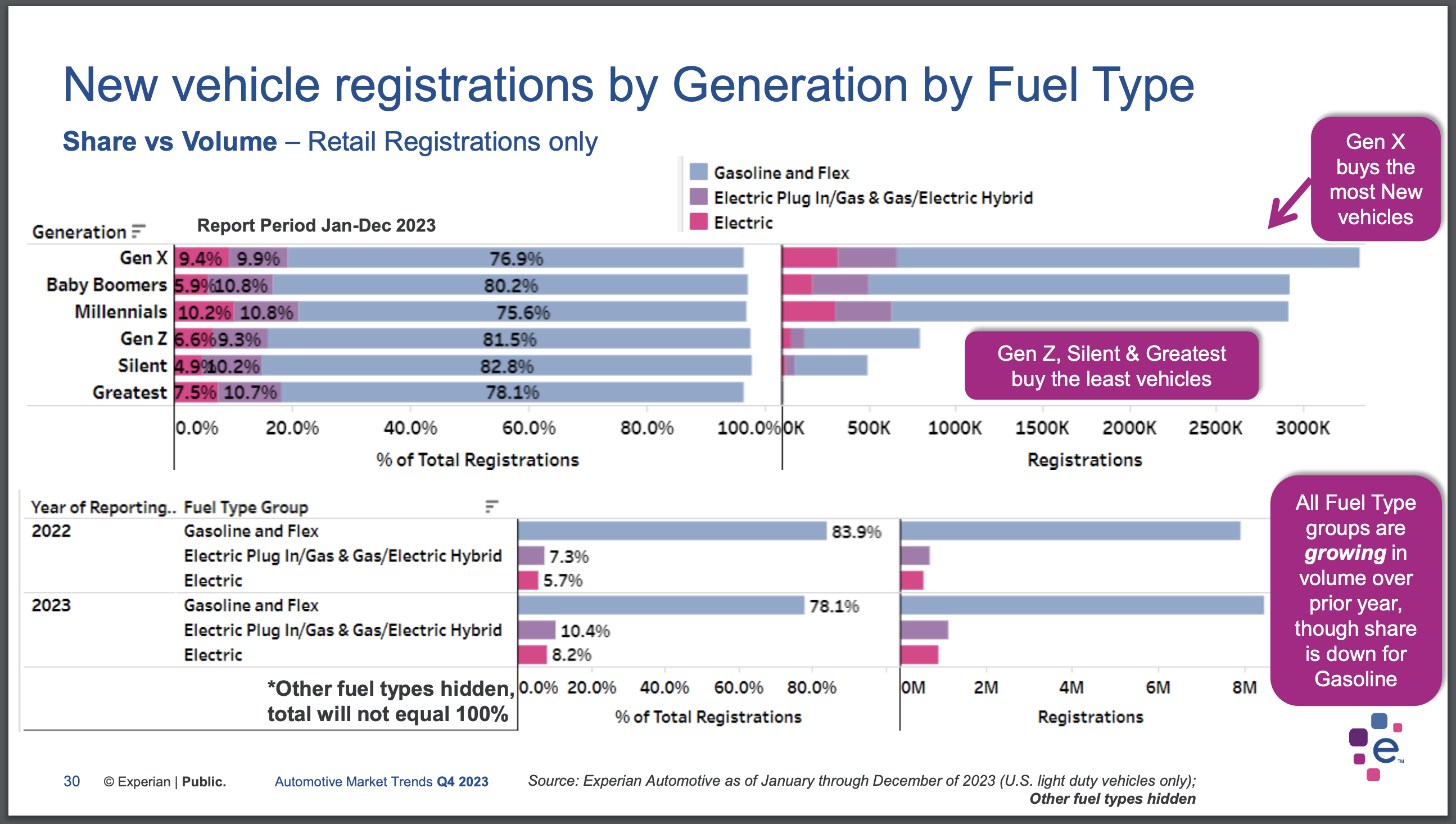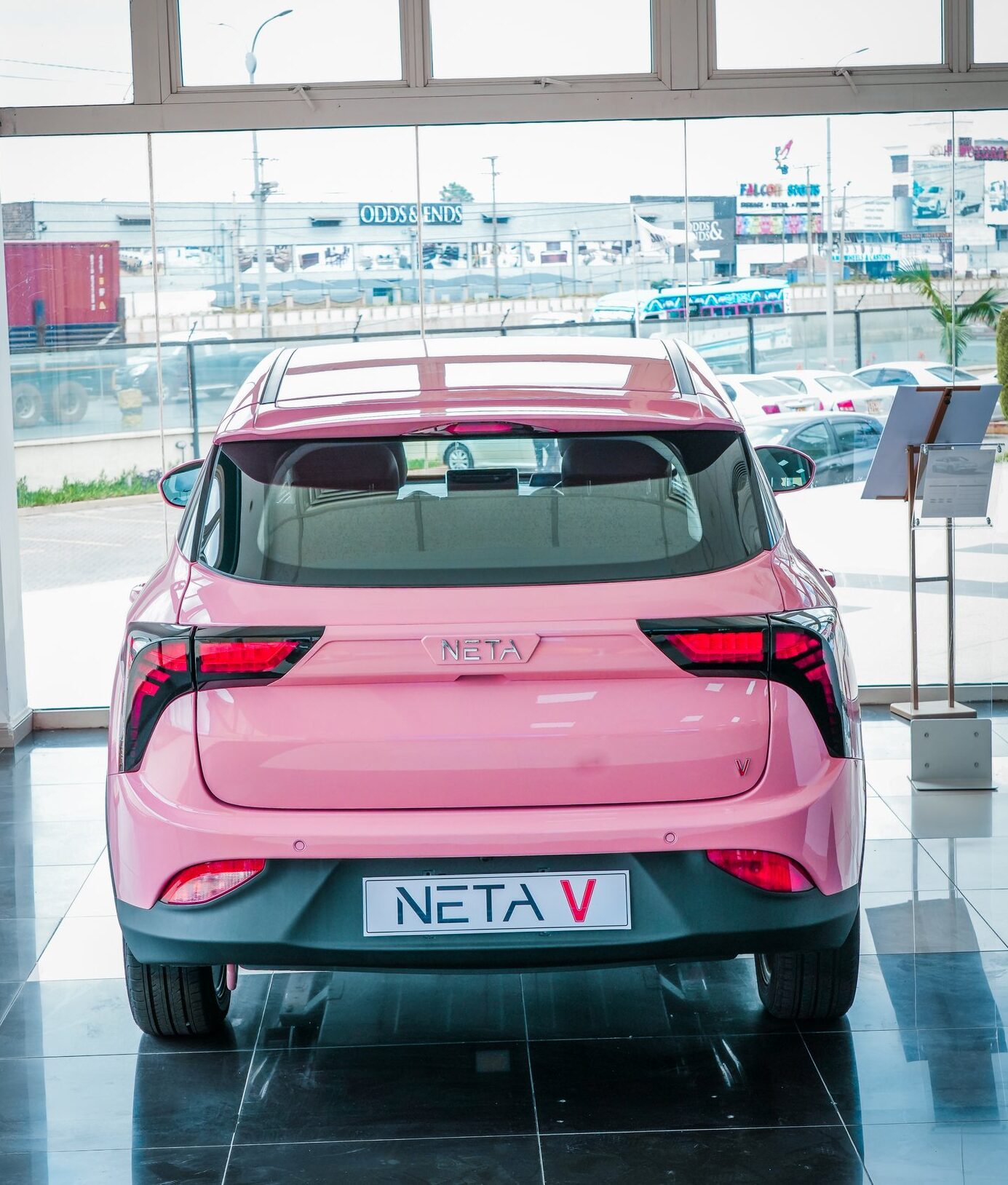Sign up for daily news updates from CleanTechnica on email. Or follow us on Google News!
This is one of the big questions I’ve been wondering in the past year or so. Who is buying electric cars now? For years, very early adopters were buying them because they were concerned about our growing climate crisis and/or because they were techies who quickly got drawn to the new electric era of smartphones on wheels. But there are now a lot of people buying electric cars who aren’t early adopters in one of those core buyer groups. So, who are these people?
In the US, we aren’t at 20% or 30% EV adoption like Europe and China are, but according to Experian, 8.6% of new car sales in Q4 2023 were electric vehicle sales. According to our own CleanTechnica analyses, 7.2% of 2023 auto sales were fully electric auto sales and 7.8% of Q4 2023 auto sales were fully electric auto sales. Though, that also hides a little bit how EV adoption is going in the US. Most states have much lower EV adoption rates, while California and some other states have much higher EV adoption rates. In California, 21.4% of new vehicle sales are pure EV sales! So, when we’re talking about who is buying electric cars, it’s really more mass market buyers in certain markets. With that out of the way, let’s dig into who is buying EVs in the US these days.
Generational EV Sales Data
According to Experian’s latest Automotive Market Trends Report, Gen Xers and Millennials buy the most electric vehicles, followed at a distance by Baby Boomers. Those three generations account for the vast majority of EV sales, but they also account for most auto sales in general. (Note that Gen Xers were born between 1965 and 1980, while Millennials were born between 1981 and 1996.)
In terms of what share of each generation’s auto purchases are pure EV purchases, Gen Xers and Millennials still lead the way. 10.2% of Millennial auto purchases are EV purchases, 9.4% of Gen X auto purchases are EV purchases, 7.5% of The Greatest Generation’s minimal auto purchases are EV purchases, 6.6% of Gen Z auto purchases are EV purchases, 5.9% of Baby Boomer auto purchases are EV purchases, and 4.9% of The Silent Generation’s auto purchases are EV purchases. Those figures are for 2023 as a whole. One would presume that Gen Zers would also like to purchase electric vehicles but largely don’t have enough money to cover their higher upfront purchase prices — but that’s just an assumption.

However, as Stephen Edelstein at Green Car Reports notes, it’s the older generations (Baby Boomers and The Silent Generation) that dominate control of EV policy. “Gen X and Millennials tend to buy more EVs than Baby Boomers, but the older generation is still in control of EV policy, a pair of recent studies show.”
“Meanwhile, as Pew Research pointed out last year, Boomers still dominate in Congress—and thus have a disproportionate stranglehold on federal policy.” Note that members of Congress are heavily in the Baby Boomer generation, but there’s also a disproportionate share from The Silent Generation there.
EV Loans vs. Leases
Other recent research from Experian showed that nearly half (44.8%) of EV sales used loans, while another 30.7% were leases — leaving 24.5% for cash purchases. “The average interest rate for a new vehicle reached 7.2% in Q4 2023, up from 6.1% a year ago, while the average interest rate for a used vehicle was 11.9%, up from 10.4% over the same period. As a result, the data shows that average loan terms decreased for new and used vehicles. In Q4 2023, the average loan term for a new vehicle dropped from 69.3 months to 67.9 months, and the average loan term for a used vehicle declined slightly from 67.9 months to 67.4 months,” Experian adds. “However, with higher interest rates and lower terms, the data shows that the average monthly payment increased during the fourth quarter of 2023. The average monthly payment for a new vehicle was $738, up from $720 a year ago, and the average monthly payment for a used vehicle was $532, up slightly from $530 over the same period.”
With 2024 bringing the option to lease an EV and have the federal EV tax credit for it rolled into the lease price even if you don’t have the tax liability to benefit from such a tax credit yourself (if you purchased the vehicle), one has to think that some of these figures will change a lot. I expect many younger buyers (Gen Zers and Millennials) to enter the EV market, and I expect a lot more leasing of electric vehicles. One would also expect lower average prices for electric cars, but that’s also a strong expectation due to the fact that automakers have been lowering EV prices by thousands of dollars.
EV Sales Growth
Going back to those Experian charts above, it’s also noteworthy that electric car sales jumped in 2023 compared to 2022. According to their data, 8.2% of new car sales in 2023 were electric car sales, whereas only 5.7% of new car sales in 2022 were electric car sales. Word on the street is that the 2024 EV adoption trend is even higher thus far.
So, again, while there’s a lot of hype claiming that EV sales are dropping, or at least that EV sales are not growing by as much as they were, it’s clear that the electric vehicle market is making fast strides upward. I’ll have more on that coming in a CleanTechnica report later today.
Which Electric Car Models Are Most Popular?
As far as EV model sales go, if you’ve been following our US EV sales reports, there are no surprises here, but here’s what Experian found: “Among the top five most purchased EV models in Q4 2023 were the Tesla Model Y (31.9%), Tesla Model 3 (17.6%), Volkswagen ID.4 (3.9%), Ford Mustang Mach-E (3.4%), and Rivian R1S (3.4%).” Tesla’s top two models combined for nearly 50% of US electric car sales. Since those models have an outsized impact on US EV sales data, as Tesla lowers Model Y and Model 3 prices (as it has been doing), EV sales trends will change.
Have a tip for CleanTechnica? Want to advertise? Want to suggest a guest for our CleanTech Talk podcast? Contact us here.
Latest CleanTechnica TV Video
CleanTechnica uses affiliate links. See our policy here.




